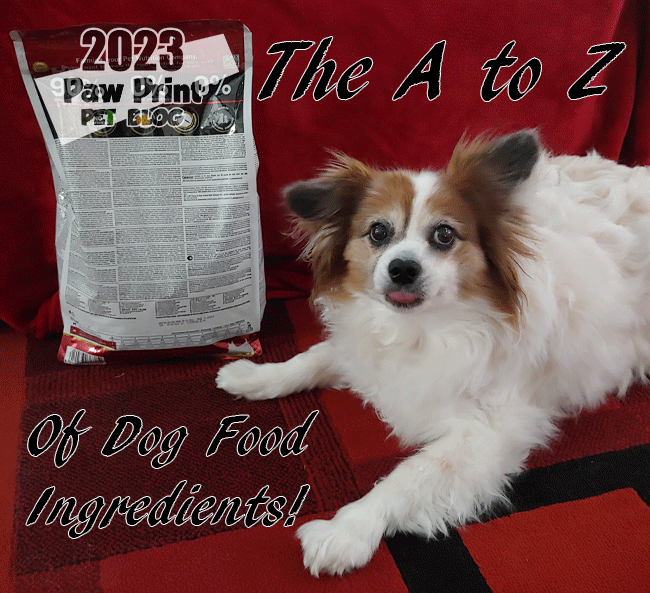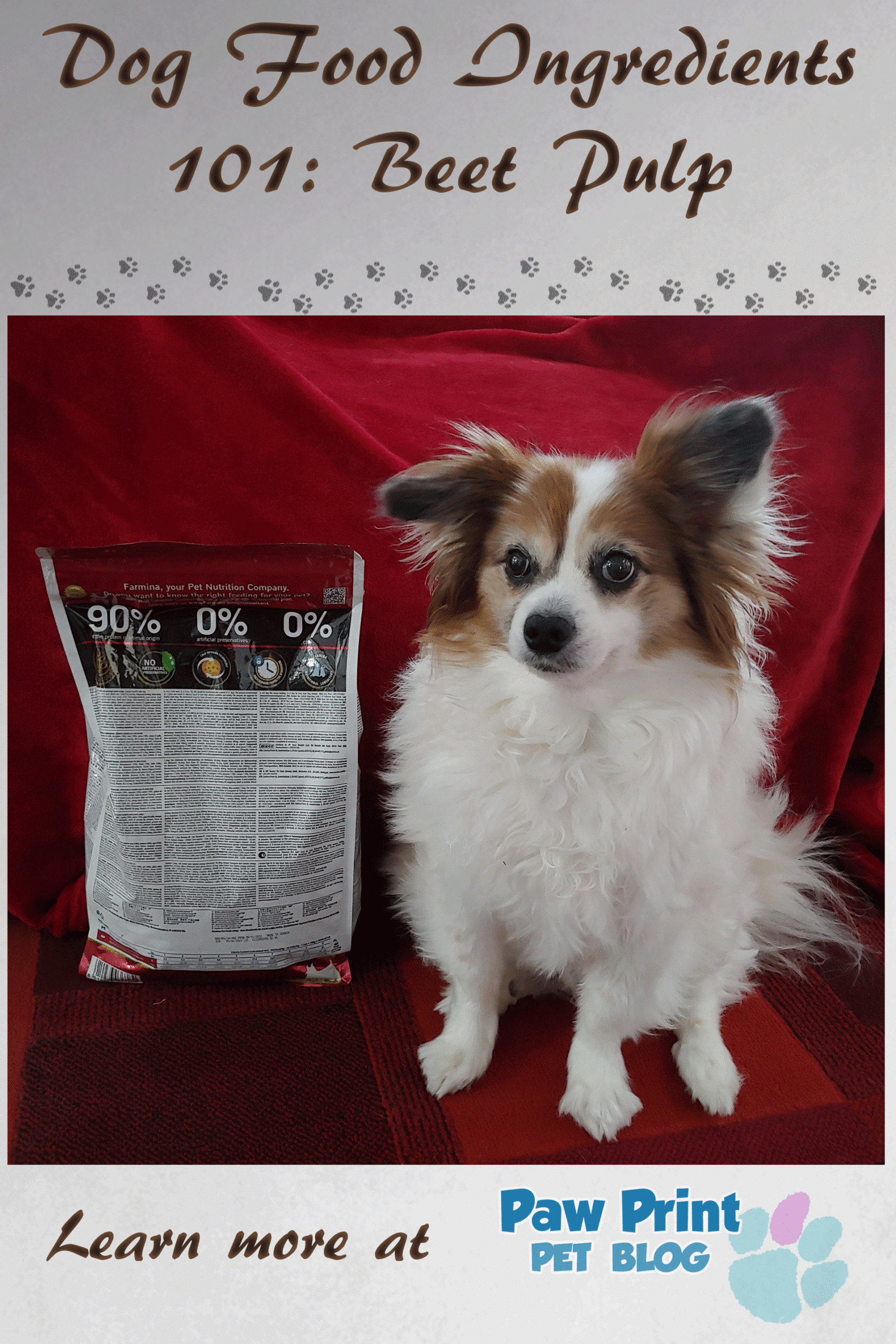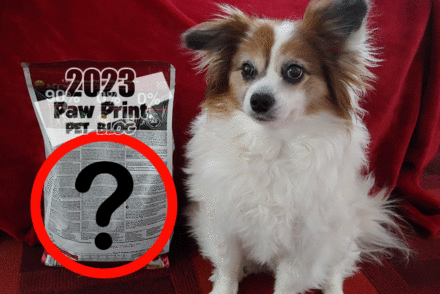 What do you feed your dog? Did you spend time researching the ingredients in your dog’s current food before selecting it? I’ve always strived to feed my two dogs, Kitsune the Papillon and Fenrir the Alaskan Klee Kai, healthy diets. But I have to admit that I haven’t always been super aware of what all the ingredients in their food are, and what they each do. Researching and learning more about specific ingredients used in dog foods, and their potential pros and cons, has been really eye-opening for me!
What do you feed your dog? Did you spend time researching the ingredients in your dog’s current food before selecting it? I’ve always strived to feed my two dogs, Kitsune the Papillon and Fenrir the Alaskan Klee Kai, healthy diets. But I have to admit that I haven’t always been super aware of what all the ingredients in their food are, and what they each do. Researching and learning more about specific ingredients used in dog foods, and their potential pros and cons, has been really eye-opening for me!
This post is part of our 2023 April blogging from A to Z Challenge! Join us this month as we go through the alphabet, A to Z, learning more about some of the ingredients that are commonly (or not so commonly, in some cases) found in our dog’s food!
Post Contents:
What is Beet Pulp?
Beet pulp is the byproduct that’s left over after the sugar is processed out of sugar beets. It’s commonly used as fodder for horses in the form of dried flakes or compressed pellets. Beet pulp is very fibrous and is, apparently, comparable to grass hay. I don’t know much about horses, but did you know that beet pulp is sometimes used as an ingredient in dog foods?

Why is Beet Pulp Added to Dog Food?
The main reason beet pulp is added to dog food is because of its high fiber content. Beet pulp is a good source of both soluble and insoluble fiber. Fiber helps to promote good bowel health.
Cons of Feeding Beet Pulp to Dogs:
Although, the benefits of beet pulp as a source of fiber for dogs is somewhat up for debate. In a 2018 study titled Beet pulp in dog food, researcher Anton Beynen shared that…
[S]tudies in dogs suggest that the changeover to a diet rich in beet pulp increases rather than decreases stool volume. This could be considered disadvantageous to many dog owners….Beet pulp lowers macronutrient digestion and expands stool bulk. Other indicators of canine gut function are not convincingly improved.
In addition, a 2016 study titled Dietary beet pulp decreases taurine status in dogs fed low protein diet, researches concluded that…
BP [beet pulp] may contribute to a decrease taurine status in dogs by increasing excretion of fecal BA [bile acids] and decreasing protein digestibility, thus decreasing the bioavailability of sulfur amino acids, the precursors of taurine.
Why does a dogs taurine levels matter? Taurine is an amino acid essential for, among other things, proper cardiac (heart) function. For a couple of years now there have been ongoing concerns that certain diets may negatively impact dog’s taurine levels, causing a potentially life threatening condition known as dilated cardiomyopathy.
Benefits of Feeding Beet Pulp to Dogs:
The main proponents of adding beet pulp to dog food seem to be the dog food companies themselves, who tout the ingredient as a high quality fiber source.
So What’s the Verdict on Beet Pulp? Is it Safe as a Dog Food Ingredient?
Before doing research for this post I figured beet pulp would be a pretty neutral ingredient in dog food. Not super nutritious, but not harmful either. It certainly is a source of fiber that may be beneficial to dogs struggling with certain GI issues. Beet pulp in dog food can help a dog feel full, without adding a lot of excess calories.
However, the studies on beet pulp and taurine are a bit concerning to me personally. Since the potential link between diet and dilated cardiomyopathy was first announced I made sure to avoid dog foods that contained peas, lentils, pulses, and potatoes in excess. Until recently, I wasn’t aware that beet pulp may also play a roll in decreasing taurine levels in dogs.
The complete story about dilated cardiomyopathy as it potentially relates to diet is still being written. More research needs to be done. I’ve spoken with pet owners and experts on both sides of the fence. Some who say you should avoid taurine lowering ingredients to be safe, and others who feel that, so far, the connection between certain ingredients and dilated cardiomyopathy isn’t strong enough to convince them to avoid certain dog foods. I usually err on the side of caution when it comes to my own dogs. But this is something you’ll probably want to research more before coming to a conclusion for yourself.
Comment below! Does your dog’s food contain beet pulp? Is it an ingredient you feel safe feeding, or one you avoid?






No Comments